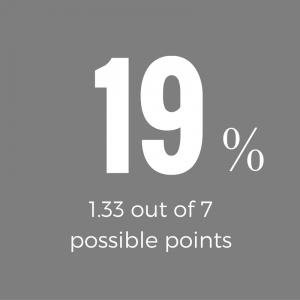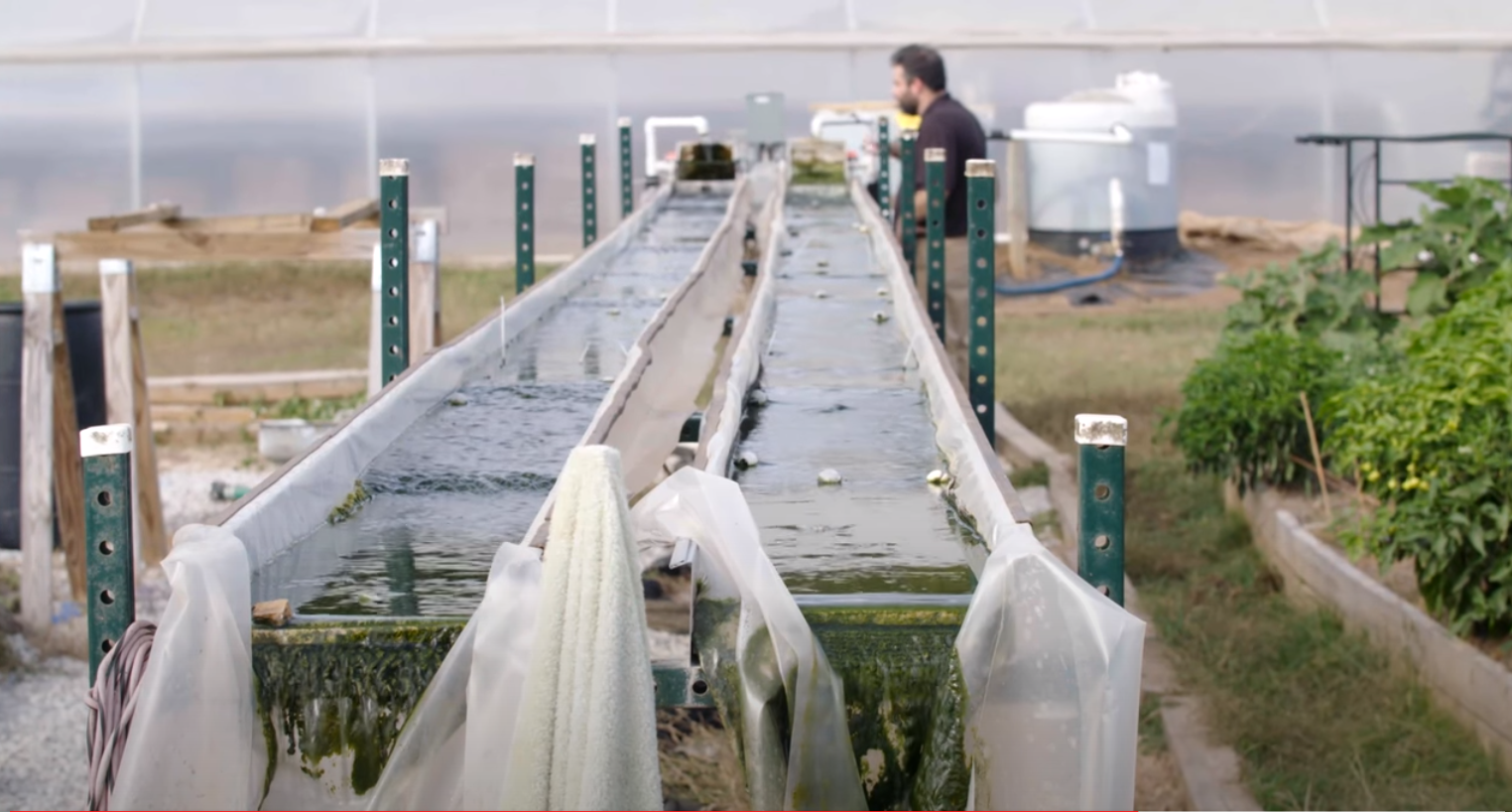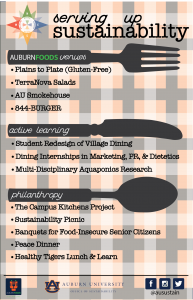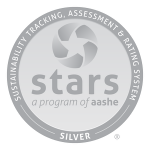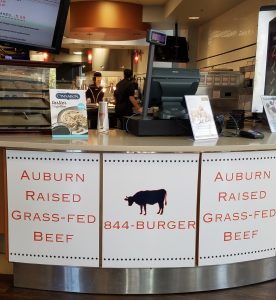Tiger Dining leads Auburn University’s efforts to leverage our purchasing power to help transform our food system, support our local food economy, and enhance the educational experience for our students. In addition, we strive to improve dining operations to reduce negative environmental impacts on campus. Together these efforts boost our local economy, improve personal well-being, and reduce risks to our environment.
Dining |
Practices
SPOTLIGHTS
Profile
Profile
Everywhere on Auburn’s campus, you can find students who are passionate about a wide variety of causes, and senior Rachael Gamlin is no exception. Growing up in Birmingham, she didn’t have much experience with Auburn until a college visit led her to fall in love with the university and the sense of family she discovered here. She committed to Auburn and at the start of her freshman year Rachael connected with students who helped her discover her niche among the many organizations around campus, and in the process realized her enthusiasm for sustainability.
Rachael jumped in and joined two food-focused groups: the Committee of 19 and the Campus Kitchens Project (AU KCP). The Committee of 19 focuses on advocacy for food policy change while Campus Kitchens works in the Auburn community to alleviate hunger by gathering, managing, and delivering unused food to those in need. Rachael has been actively involved in the leadership of both organizations.
Project
Jumpstarted by Tiger Dining’s desire for local foods, in partnership with the E.W. Shell Fisheries Center, College of Agriculture’s Department of Horticulture, and the Food Systems Institute, Auburn University now serves it’s own farm-to-table tilapia and veggies, harvested directly from the E.W. Shell Fisheries Center on North College street — less than 5 miles from the heart of campus. The tilapia and vegetables can be found in a number of food venues across campus, and serve as a feature item in the Auburn Foods brand.
Points of Performance
Help us spread the facts on sustainable food practices at Auburn by downloading and sharing our poster, and then spend some time learning the details about some of the people and projects that help create our success
Campus Kitchens Project
Emil Topel
Glenn Loughridge
Hallie Nelson
Jaimen Perez
Rosa Cantrell
2016 REPORT CARD
The dining services credits in AASHE STARS “seek to recognize institutions that are supporting a sustainable food system.” Modern industrial food production often has deleterious environmental and social impacts. Institutions can use their purchasing power to require transparency from their distributors and find out more information about the food they offer, and use their food purchases to support their local economies. Institutions can encourage safe, environmentally-friendly and humane farming methods; and help eliminate unsafe working conditions and alleviate poverty for farmers, all of which help reduce environmental impacts, preserve regional farmland, improve local food security, and support fair and resilient food systems.
Below you can find out more about the specifics of Auburn’s performance in each of the credit areas, as well as how our efforts compare to those of other doctoral institutions who have also completed the STARS 2.0 assessment. *
OP-6: Food and Beverage Purchasing 0.20/4.00
This credit recognizes institutions that are supporting sustainable food systems through their food and beverage purchases. Institutions can do this by prioritizing the purchase of environmentally and socially preferable food and beverage items. These actions reduce the social and environmental impacts of food production and help foster robust local economies and food security; improved conditions for farm workers; healthier animals, soils and waterways; and secure livelihoods for farmers.
OP-7: Low Impact Dining 1.13/3.00
This credit recognizes institutions that are supporting sustainable food systems and minimizing the impacts of their dining service operations. An institution can operate its dining services sustainably through its procurement policies and decisions, by preventing food waste and diverting food materials from the waste stream, by making low impact dining options available, and by educating its customers about more sustainable options and practices.
Collectively these efforts place us toward the top of the 1st quartile, when compared to other doctoral institutions that have completed the STARS 2.0 assessment.

* Language adapted from the official STARS 2.0 Technical Manual.
2016 PRACTICES IN PLACE
At the time of the AASHE STARS submission, key sustainability-related dining practices included:
Campus Kitchens Project
Cooking oil to bio-fuel
Composting pilot project
Culturally-diverse dining options
Fit Station
Offering local and/or organic products at multiple venues on campus
Offering vegetarian, vegan, and gluten-free choices
Plains to Plate
Support for aquaponic vegetable production system
Styrofoam-free dining
Trayless dining
KEY PARTNERS AND PLANS
The successes of sustainable dining at Auburn wouldn’t be possible without the foresight and determination of many units across campus and in the community. We hope you’ll choose to learn more about these important partners and the services and programs they offer the Auburn Family.
Auxiliary Services — Tiger Dining
College of Agriculture — Department of Animal Sciences
College of Agriculture — Biosystems Engineering
College of Agriculture — Department of Horticulture
College of Agriculture — Department of Poultry Sciences
College of Agriculture — School of Fisheries, Aquaculture, and Aquatic Sciences
GET INVOLVED
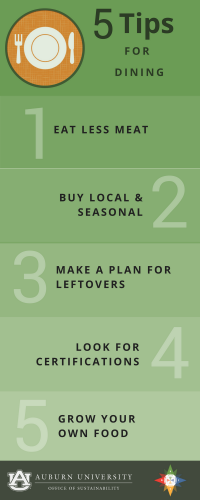 Choosing more sustainable options for your own dining experiences can serve as a great start to making a difference, but you can also help improve our world by joining with others to work on the food system at a larger scale. Consider connecting with one of the following groups or academic units to meet others interested in working on these issues, too.
Choosing more sustainable options for your own dining experiences can serve as a great start to making a difference, but you can also help improve our world by joining with others to work on the food system at a larger scale. Consider connecting with one of the following groups or academic units to meet others interested in working on these issues, too.
Organizations
Universities Fighting World Hunger – Auburn Chapter
Degree Options
Fisheries and Allied Aquacultures Degree
Master in Biosystems Engineering
2016 STARS Report Score
